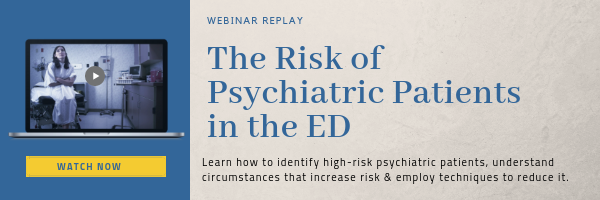 In today’s case presentation, we will navigate the difficult waters of patient refusal of life-saving care based upon religious beliefs. In this actual case, a woman’s life hung the balance. There was little time for formal mental status evaluation or communication with legal counsel or a local judge.
In today’s case presentation, we will navigate the difficult waters of patient refusal of life-saving care based upon religious beliefs. In this actual case, a woman’s life hung the balance. There was little time for formal mental status evaluation or communication with legal counsel or a local judge.
It was around 8:30 pm during a busy shift in the Cook County Emergency Department. A young woman had been rolled into the department with low blood pressure.
On my initial evaluation, she was awake with a normal mental status; she was quite pale, her blood pressure was 80 over 40, and she was holding a basin into which she had vomited blood.
I ordered normal saline ‘wide open’ and also told the nurse to draw blood and prepare for immediate transfusion.
The patient heard me request the transfusion and told me she would refuse the transfusion based upon her religious beliefs. She was a Jehovah’s Witness. I told her there was a very high likelihood she would die without blood, and again she refused. I asked her to repeat what I had said; she fully repeated my statement and said that she understood it. Then she vomited blood again and passed out.
Her blood pressure continued to drop and she remained unconscious. The source of the vomiting was not my first priority. She needed fluids and blood replacement. It seemed clear that with blood she would live and without it she would die. There are some blood substitutes that are acceptable to Jehovah’s Witnesses, but none were available in the County ED.
 I told the lab to send universal donor blood; it arrived quickly, but I didn’t know if I should begin the transfusion against her wishes. She had clearly refused the blood, but she was unconscious and now she was dying.
I told the lab to send universal donor blood; it arrived quickly, but I didn’t know if I should begin the transfusion against her wishes. She had clearly refused the blood, but she was unconscious and now she was dying.
I asked my physician colleagues what they thought, and they had no idea. The hospital administrator recommended we call the hospital attorney, who was not available after hours. The administrator began calling for a judge on call in our jurisdiction, but we ran out of time.
The patient deteriorated further, and I knew death was imminent. I began the blood transfusion and called a GI specialist and surgeon. They came to the department immediately. She began to stabilize after 4 units of blood, and within two hours she woke up as she was waiting to go endoscopy.
When she became aware that I had begun the blood transfusion, she became incredibly angry and threatened to sue me.
What are the key issues here? Did I do right or did I do wrong?
Later during the shift, the judge returned our call. I explained the facts, and he agreed with my decision based on the fact that the patient became unconscious immediately after her refusal. He considered whether she could possibly have had a normal mental status with that blood pressure and her ED course.
He did say that in general, an adult patient of sound mind has the right to control what happens to his or her body, including the provision of life-saving care, but that under the circumstances, he would err on the side of saving the life, and then review the case further if the patient stabilized.
The key points here are as follows:
- Every adult of sound mind has the right to control what happens to his or her body, including the refusal of life-saving care.
- These types of decisions can and should be managed through legal instruments that are available in every state, such as the Durable Power of Attorney for Healthcare. States allow adults of sound mind to designate an agent to make healthcare decisions if the individual is no longer able to.
In those circumstances, if there is no such document or the agent is not available, treatment should be withheld until a judge or judicial administrator considers the case and interviews the patient. Obviously that was not possible in this case.
- Treating someone against their will may lead to allegations of assault, battery, and intentional infliction of emotional distress.
- The difficulty in this case was that the patient made a clear statement of her intent; then she repeated my statement and she said she understood it. When she said she understood my statement, her blood pressure was dangerously low, and she passed out immediately afterwards. In anyone’s analysis, this was a close call. Not many practitioners are faced with such a seconds-to-minutes dilemma. In retrospect, I’m glad I treated her against her will and saved her life; I’m also pleased that this is not a daily occurrence in the practice of emergency medicine.


